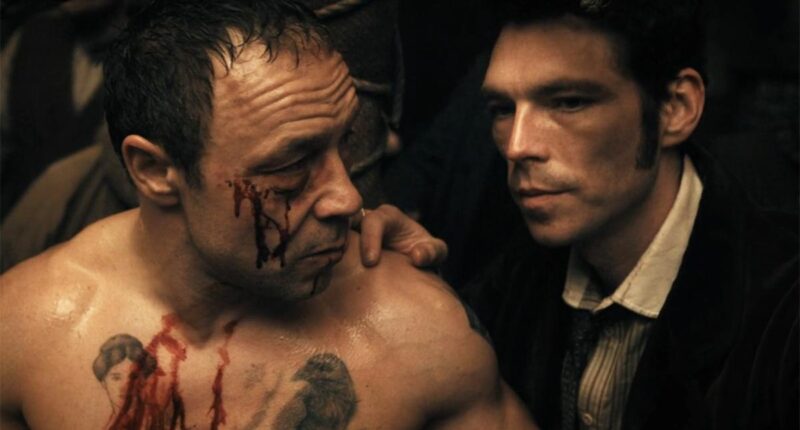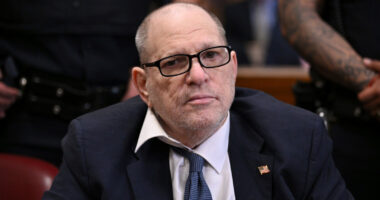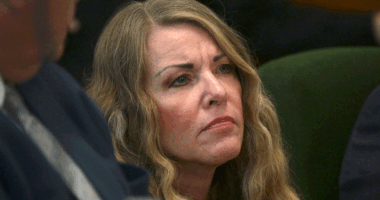When new shows debut, even exceptionally good ones, they often fall victim to what I refer to as “pilot-itis.” This entails a tendency to exaggerate and oversimplify in the hopes of grabbing and holding the audience’s attention. Right from the continuation mid-cliffhanger, where Jamaican immigrant Hezekiah Moscow gets ready to confront Sugar Goodson in the boxing ring, A Thousand Blows breaks away from the stereotypical “newcomers in the big city” scenarios that marked its beginning.
Featuring dialogue rich in poetic grit reminiscent of David Milch’s Deadwood — Sugar even oversees the square from a balcony, making sure writer-creator Steven Knight’s influences are clear — this episode delves into the aftermath of Sugar and Hezekiah’s intense fight. It’s a brutal three-round battle captured in vivid detail, devoid of the punch-hiding techniques or quick edits the initial episode relied on to soften Alec and Treacle’s conflict. The fight showcases a clash of styles, pitting Hezekiah’s agility against Sugar’s power. And although Hezekiah emerges victorious, the match is unfairly snatched away from him by the ring officials siding with Sugar.
Despite being deprived of the main prize, Hezekiah manages to earn some money for lasting through three rounds. Unfortunately, he also gains the relentless animosity of Sugar. Initially seen as a potential mentor to Hezekiah, Sugar turns out to be more of a malevolent counterpart. Both men witnessed their fathers’ tragic deaths in their childhood, with Sugar’s father falling in a street brawl and Hezekiah’s father perishing in a massacre by British troops. Both men fought tooth and nail to survive, with Sugar even shielding his younger brother Treacle from bullies.
Sugar hates to lose, and knows he was beaten, which is why he calls for a rematch: He can’t stand the blow to his ego, nor his loss of standing in the eyes of the neighborhood, which hails Hezekiah as “the hero of the common man.” But more than that, Sugar hates to lose to a man he recognizes as being just like him. In his mind, even a town as big as London ain’t big enough for the both of them.
“It’s like looking into a mirror,” Sugar snarls at Hezekiah as they negotiate their terms, despite the fact that Hezekiah is a Jamaican a couple decades younger and a solid foot taller. It’s kind of a laugh line, but actor Stephen Graham delivers it with such gravity and conviction, and Malachi Kirby sells it right back, that when Sugar says “There can’t be two of us,” you believe it.
Equally impressive is the dynamic between Sugar and Treacle. Graham and James Nelson-Joyce create a compelling dynamic here: The older brother who looked out for Treacle now needs looking-out for himself, and Treacle struggles in vain to get him to realize it. (He tries to pay Hezekiah to throw the fight, which Hezekiah immediately reports to Sugar in the episode’s funniest moment.) That Sugar plans to kill Hezekiah in the ring is something the boxing titan spells out at every opportunity; that Hezekiah can and will kill Sugar if he has the chance is something only Treacle, not Sugar, noticed in the man’s eyes during that fight. This is going to be a battle to the death no matter who wins.
Unless Mary Carr has something to say about it. The Queen of the Elephants, impressed by Hezekiah’s skills and self-confidence, asks him to join her big plan to rob the Queen of England. Though it’s unclear what his role will be, at least one male member of the crew will pose as part of the visiting Chinese trade delegation to whom Her Majesty will be handing over the loot they plan to lift. The Elephants procure the silk needed for the disguise during a daring broad-daylight smash-and-grab raid of a posh West End retailer, earning the allegiance of a besotted shopgirl, Alice Diamond (Darci Shaw), in the process. (Her bold remark about having a birthmark on her thigh in the shape of a stiletto grabs Mary’s attention for sure.)
The order for the garment is placed with the Elephants’ official tailor, a leftist agitator named Saul Woolfe (Eddie Toll) with whom Mary’s second-in-command, Eliza Moody (Hannah Walters), is secretly in love. Mary disapproves of Woolfe’s politics: “We are ordinary decent criminals,” she reminds the smitten Eliza.
Mary feels no such tenderness toward her own late lover, Sharkey, who gets run down in the street by a carriage while drunk in front of Mr. Lao’s horrified eyes. Mary barely even glimpses at the body before making her pitch to the equally horrified Hezekiah; she dismisses him as not a friend, merely “a cock with complications.”
To Hezekiah, London is little more than a city of cheats. His boxing match was rigged against him. His buddy Alec’s new boss, a eccentric distiller named Jack Mac (Gary Lewis), is selling rotgut passed off as Jamaican rum. You’d think Mary, who was committing larceny by pretending to be pregnant the first time Hezekiah saw her, would fall into this category too, but her no-nonsense disposition — not to mention the obvious chemistry between them — leads him to trust her.
That’s how she can get close enough to him to take his hand in hers…and break his fingers. They’ll heal in time for the robbery, she says, but not in time to throw his life away against Sugar, either by dying in the ring or getting murdered afterwards if he wins.
Mary knows Sugar well, it seems. He shoots her enough meaningful glances during the fight, and is preoccupied enough by her association with Hezekiah, to indicate his feelings are deeper, or darker, than those of a mere business relationship. For her part, Mary is as intent on seeing Sugar leave the deadly world of bareknuckle boxing behind as his brother Treacle is, joining the younger man in advising Sugar to put on boxing gloves and join the swanky, respectable world of championship prizefighting. In response, Sugar takes the gloves she stole for him and hurls them into the same river she and Hezekiah dumped Sharkey’s body into, fed by a literal river of blood flowing down from the slaughterhouse below. It’s a hell of a visual.
There are quite a few of those in this episode. The haunting moments before the massacre in Jamaica are distinguished by the bright, almost washed-out afternoon light of a hot day in the Caribbean and the green vegetation all around, a sight completely absent from the sections of London we’ve visited. The lighting in Hezekiah and Alec’s basement “apartment” is soft and impressionistic. The painterly picture of Mary sitting and waiting in the tunnel mouth, watching the river traffic go by, is one of my favorite shots of the year.
One last thing, and something tells me this is gonna be a love-it-or-hate-it situation, but the music of A Thousand Blows stands out nearly as much as any of its actors or images. Composers Federico Jusid and Adrian Foulkes have created a sort of deranged tarantella as sung by drunken imps as the show’s theme — or maybe the way to describe it is “It’s like an early Danny Elfman score, Scrooged let’s say, if Danny Elfman grew up on a whaling ship.” Its recurrence amps up the anxiety level during the show’s tenser moments; it may drive you a little nuts, but that’s the point.
Sean T. Collins (@theseantcollins) writes about TV for Rolling Stone, Vulture, The New York Times, and anyplace that will have him, really. He and his family live on Long Island.
(function(d, s, id) {
var js, fjs = d.getElementsByTagName(s)[0];
if (d.getElementById(id)) return;
js = d.createElement(s); js.id = id;
js.src = “//connect.facebook.net/en_US/sdk.js#xfbml=1&appId=823934954307605&version=v2.8”;
fjs.parentNode.insertBefore(js, fjs);
}(document, ‘script’, ‘facebook-jssdk’));

















